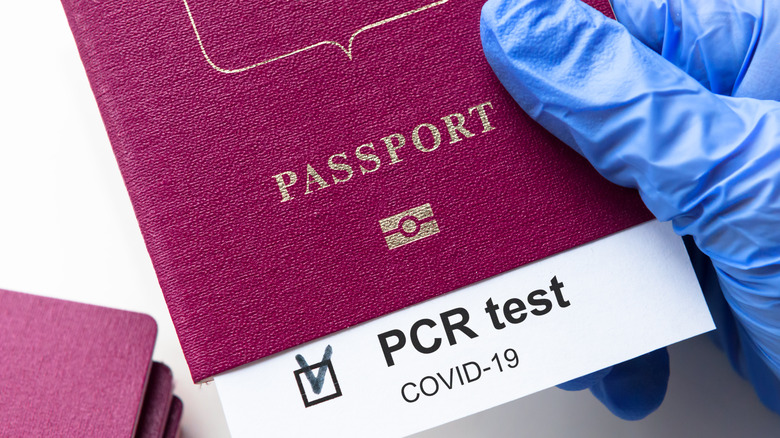How Does The CDC Know How Many COVID-19 Cases Are From The Delta Variant?
There is a lot of talk recently about the rise of the delta variant and the problems it is wreaking across the globe, including in the United States. The delta variant has sparked the return of indoor mask recommendations even for vaccinated people. According to the Centers for Disease Control and Prevention (CDC), the delta variant is at least twice as contagious as previous variants, and it may also be more likely to land people in the hospital. Unfortunately, the delta variant now comprises more than 83% of COVID-19 cases in the United States, says the CDC's COVID Data Tracker.
You may be wondering how the CDC can tell the variant to which a particular COVID-19 case belongs, particularly since COVID-19 rapid and PCR tests cannot tell you that information. In fact, this question has been popping up a lot on social media lately, according to Reuters. Representatives of the CDC tell Reuters that variants are tracked using a process called genomic sequencing.
Genomic sequencing has been around for years. For example, it has been used to monitor Ebola outbreaks, according to American Association for the Advancement of Science.
Genomic sequencing allows the CDC to monitor diseases
CDC representative Jade Fulce acknowledges (via Reuters) that the test you get at your local pharmacy will not tell you if you have the delta variant or any other variant. Instead, state health laboratories send the CDC about 750 samples to evaluate each week. The CDC then uses genomic sequencing to analyze the genes in the virus' genome and determine the variant. This strategy allows the CDC to not only track variants, but detect new variants as soon as they emerge.
Not all specimens of SARS-CoV-2 (the virus that causes COVID-19) are sent for genomic sequencing. Dr. Stephen Morse of the Columbia University Medical Center tells Reuters that he thinks "we should be doing more systematic virus testing in the general population to have better estimates of viral circulation in the community. But when 80%+ of the viruses tested (by doing genomic sequencing on samples from PCR+ tests) are delta variant, there's a very high statistical likelihood it's true."


